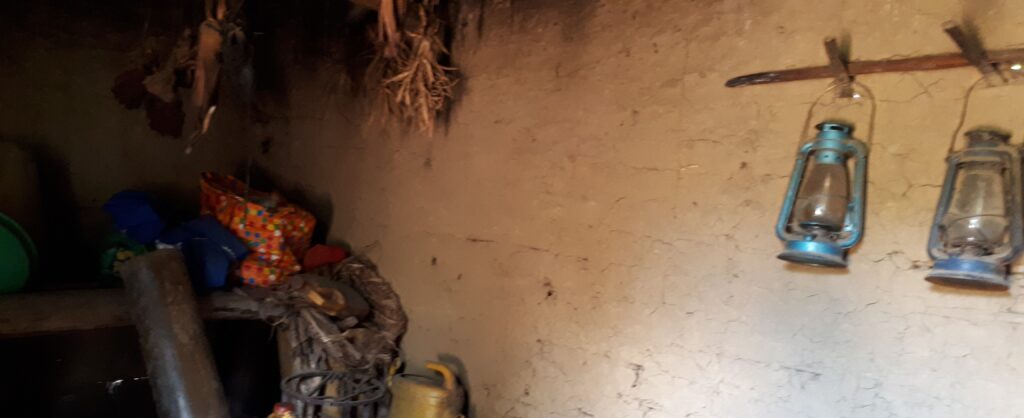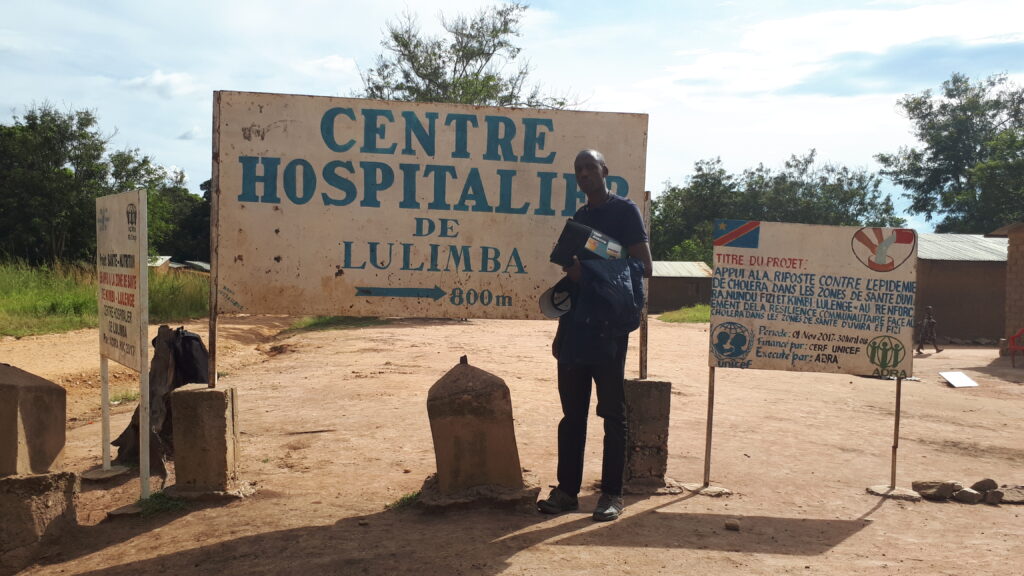
Dr. Delphin Ntanyoma
@Delphino12
“sources of relative deprivation that ex-combatants encounter after demobilising create an environment of persistent deprivation that may motivate their remobilisation.”
For decades, the Eastern Democratic Republic of Congo (DRC) has experienced violence in which youth, mostly men, regularly join and rejoin armed groups. The question, of why ex-combatants remobilise and rejoin armed groups in contexts of ongoing and cyclical violence like Eastern DRC is a central focus of my research. In my work, I extend the lens of relative deprivation to explore the question of under what conditions ex-combatants remobilise. The framework of relative deprivation argues that when a gap between what is there and what ought to be there is perceived as unfair, it can lead to collective violence. In my work I investigate the utility of extending this framework to understand how persistent experiences of disappointment, among ex-combatants informs their remobilisation after previous histories of mobilisation and demobilisation.

In October 2023, I reconnected with John[1], one of ex-combatants I interviewed back in 2018-2019. John demobilised in 2015 after spending a decade as a combatant in North Kivu. I have had long conversations with John, and in 2018 he expressed huge disappointment related to both his past experience as a combatant, and after his demobilisation. John’s experience as a combatant culminated in the breakup of his familial ties including his relationships with his children and wife whom he has divorced with. Despite his dissatisfaction, John alongside many others ex-combatants are now at the frontlines of war once more; John currently serves as a commander within the Wazalendo armed coalition movement in Eastern DRC.
This blog offers reflections from my research exploring the relationship between disappointment and (re)mobilisation in North and South Kivu regions. I show that the gap between expectations and reality (the essence of ‘relative deprivation’) can and does drive peace and conflict processes in three ways. Firstly, this gap motivates combatants to join armed groups and rebellion hoping to achieve change. Secondly, it encourages combatants to abandon insurgent violence, to demobilise, when faced with disappointments around the hardship of insurgency or promised better change. Thirdly, layers of disappointments may further drive ex-combatants to remobilise and rejoin armed groups when reintegration programs and persistent insecurity fail to meet their economic and physical security needs. This blog speaks to questions of ‘building bridges’ by extending understandings of combatants’ trajectories, bridging their experiences of mobilisation and demobilisation with the subsequent choice to remobilise in contexts of persistent violence.
Disappointment as a driver for mobilisation and demobilisation
My research compares ex-combatants’ levels of satisfaction vis-à-vis their expectations when joining, switching, and leaving armed groups. Motivations among ex-combatants to voluntarily enlist with armed groups include political ideology such as liberating DRC from a dictatorial political regime, community protection along ethnic lines, economic motivations, as well as seeking out new experiences.
Motivations to demobilise among ex-combatants reveal high levels of dissatisfaction with their armed group experiences. Over half of my research participants reported a lack of salary, harsh living conditions, and a loss of interest as motivating their decision to demobilise. Others indicated family responsibilities and combat injuries as factors in their demobilisation. Overall, the mismatch between ex-combatant expectations of armed group participation against the reality of mobilisation led to ‘demobilisation through disappointment’.

Disappointment beyond demobilisation
My research shows that less than 10% of surveyed ex-combatants were satisfied with the time they spent in combat life. Yet experiences of dissatisfaction, for many ex-combatants, extend beyond demobilisation (through disappointment). The local context in Eastern DRC is characterised by a depressing socio-economic landscape filled with uncertainties. This reality mirrors Pauline Zerla’s work in the Central African Republic, who finds that post-demobilisation experiences of “reintegration is mostly about the survival of their [ex-combatants] families and the everyday struggle after war”. My fieldwork suggests that ex-combatants in Eastern DRC who return to civilian life suffer from stigmatisation and reduced income, even as the number of their dependents increase. Interviewees reported their earnings and income had not kept up with costs of food, housing, and schooling for their children. Many risk falling into a poverty trap: acquiring debts which put pressure on their home lives.
Host communities are also reluctant to welcome ex-combatants and sometimes stigmatise them or exclude them from employment. Paul[2], an ex-combatant based in Uvira told me that they are mostly employed as porters (regardless of their background and level of education) at the Uvira port or choose to wait for assistance from relatives (Paul, 26 April 2019). He insisted that porters at the Uvira port must carry heavy loads on their shoulders or heads. They have tried, without success to find other employment opportunities such as within local and international organisations which are estimated to exist in the hundreds in Uvira. Paul recalled that some of the ex-combatants were military officers within their respective armed groups. Moreover, many ex-combatants have to leave their local communities and are forced to settle in unfamiliar areas, where they don’t enjoy kinship ties.
Additionally, local communities including ex-combatants themselves are vulnerable to widespread and ongoing insecurity caused by active armed groups. Armed groups proliferate as many try to fill the security vacuum left by the state. The Congolese national army, FARDC has failed to pacify and stabilise this region. The army operates as violence brokers that easily collaborates with militias to access resources. The Congolese state is largely absent and unable to tackle underlying causes of conflicts as regional countries also exploit this security vacuum to further their own economic interests. Colonial legacies have categorised local communities into those considered as “native or autochthonous” and those seen as “newcomers or foreigners”; and this keeps fuelling violence. Many combatants, including John, now identify as “Wazalendo”, and tend to believe that “Kinyarwanda-speakers” including Congolese combatants within opposing M23 rebel groups are not “real” Congolese.
Conclusion
Together, these sources of relative deprivation that ex-combatants encounter after demobilising create an environment of persistent deprivation that may motivate their remobilisation. This litany of pressures for ex-combatants threatens the prospects of peace and has tempted some to return to combat.
To avoid remobilisation, it is therefore crucial that ex-combatant disappointments are effectively addressed and not compounded by DDR failures, economic despair, and ongoing insecurity. To enjoy success, as in Uganda and Liberia, DDR and other demobilisation/reintegration initiatives in the Eastern Congo need to ensure that ex-combatants are able to return to safe host communities, and to enjoy economic opportunities when doing so. These prospects cannot be merely ‘pie in the sky’ for ex-combatants. Addressing the mismatch between expectations and reality is critical to securing both peace and the lasting demobilisation, or effective reintegration, of ex-combatants. Without this, continuities of violence diminish the effect of ‘demobilisation through disappointment’ among ex-combatants. In other words, relative deprivation becomes especially volatile when it is experienced as persistent, extending from pre- to post-war experiences among individuals who return to violence.
[1] Pseudonym
[2] Pseudonym

